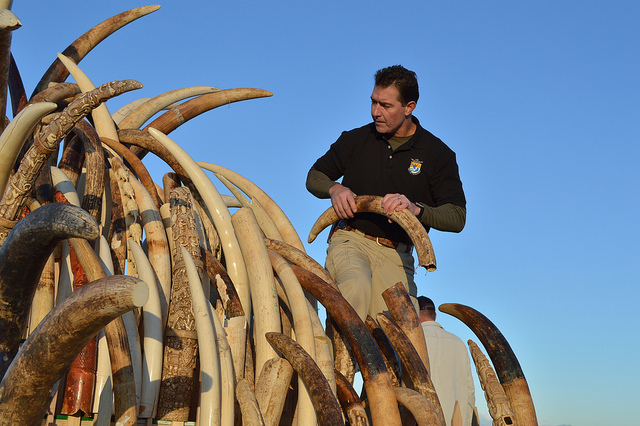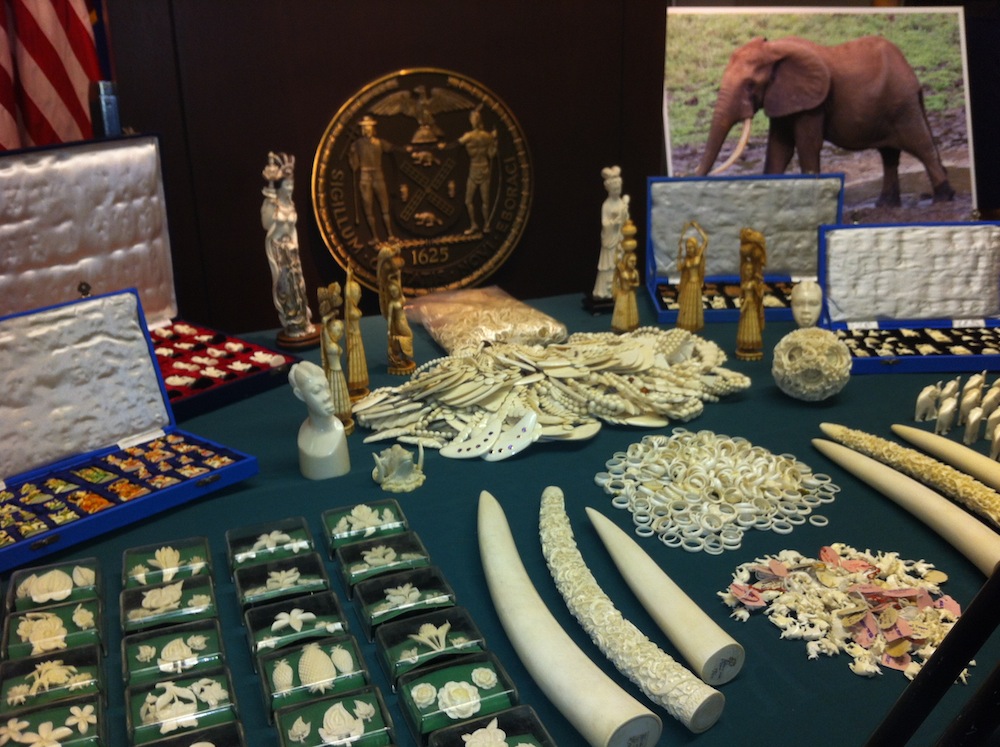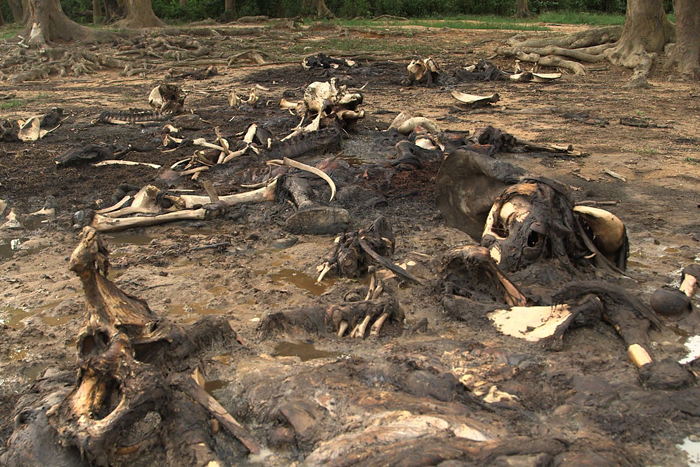NY State Lawmakers Weigh Ban on Sale of Ivory

NEW YORK — At a public hearing held today (Jan. 16) here in Manhattan, state lawmakers discussed the need to tighten restrictions on the sale of ivory in New York, with some raising the possibility of a statewide ban on the trade.
A diverse panel of diplomats, law enforcement officials, research scientists and activists testified before the New York State Assembly Standing Committee on Environmental Conservation to evaluate the effectiveness of existing laws and regulations to protect endangered species and halt the illegal sale of ivory.
"You have big ports here; our inspectors here in New York are extremely busy," William Woody, assistant director of the Office of Law Enforcement at the U.S. Fish and Wildlife Service, said of New York's role in the illicit ivory trade. [In Images: 100 Most Threatened Species]
New York is one of the largest markets for illegal ivory in the United States, and despite laws in place to restrict its sale, enforcement of these regulations has remained a challenge, said Maj. Scott Florence, acting direct of the division of law enforcement at the New York State Department of Environmental Conservation.
"At least anecdotally, everyone points to New York," Florence said. "That's where all the trade is happening."
Currently, it is not against the law to possess ivory in New York, but it is illegal to sell the material without a proper permit. Internationally, the ivory trade was banned in 1989, yet the demand for ivory now is higher than ever, and lucrative black markets have emerged around the world, particularly in the United States, China and the Philippines, Woody said.
Targeting the black market
Get the world’s most fascinating discoveries delivered straight to your inbox.
In 2012, the New York State Department of Environmental Conservation, together with the U.S. Fish and Wildlife Service, seized more than $2 million worth of ivory from three businesses in New York City's "Diamond District." The bust represented a victory against the illegal commercialization of wildlife in New York, but more still needs to be done, Florence said.
During his witness testimony, Woody called up two investigators from the U.S. Fish and Wildlife Service to present several tusks and ivory carvings that had been seized by federal agents to the committee members.
"I'd say that's the tip of the iceberg," Woody said of the pieces presented to the room.
Law enforcement officials said one way to help curb the illegal sale of ivory is to strengthen criminal sanctions against offenders. Lt. John Fitzpatrick, an investigative supervisor in the state's Department of Environmental Conservation, said convictions against domestic ivory traders rarely result in prison sentences, and he compared the state's existing penalties for the illegal sale of ivory to being convicted of disorderly conduct.
"In my almost 18 years of working these cases in New York City, I can count on one or two hands the people who have gotten jail time," Fitzpatrick said.
Protecting endangered elephants
Rampant ivory poaching is placing elephant populations at risk, and the Wildlife Conservation Society (WCS) estimates that 96 elephants are killed each day by poachers in Africa. These killings have contributed to a precipitous 76 percent decline in elephant populations since 2002, said Elizabeth Bennett, vice president of species conservation at the WCS.
Furthermore, funds from the sale of illegal ivory — an estimated $10 billion industry — have been used to fuel a range of other illicit activities, including organized crime, and the trade of arms and narcotics, Woody said.
In African nations where elephants are slaughtered for their ivory tusks, the illegal ivory trade is exacerbated by a potent cocktail of poverty, poor governance and political instability, Ambassador Tuvako Manongi, Permanent Representative of Tanzania to the United Nations, said in his witness testimony.
Manongi said elephants, which are being driven to the brink of extinction, have become the latest conflict resource, and without broader efforts to target the root causes of instability in countries such as Uganda, Kenya and the Central African Republic, the result will be "extremely explosive and destructive."
Manongi expressed full support for a ban on the sale of ivory in New York, a sentiment that was echoed by Nkoloi Nkoloi, Deputy Permanent Representative of the Republic of Botswana to the United Nations.
In November 2013, the U.S. destroyed 6 tons of ivory carvings, jewelry and other trinkets that had been collected over 25 years by the U.S. Fish and Wildlife Service through smuggling busts and confiscations. The high-profile ivory crush was staged to send a global message that the material should no longer be used in commercial products.
More recently, on Jan. 6, China, the world's biggest consumer of illegal ivory, joined the global effort by crushing 6 tons of its own ivory tusks and carved ornaments.
Follow Denise Chow on Twitter @denisechow. Follow LiveScience @livescience, Facebook & Google+. Original article on LiveScience.

Denise Chow was the assistant managing editor at Live Science before moving to NBC News as a science reporter, where she focuses on general science and climate change. Before joining the Live Science team in 2013, she spent two years as a staff writer for Space.com, writing about rocket launches and covering NASA's final three space shuttle missions. A Canadian transplant, Denise has a bachelor's degree from the University of Toronto, and a master's degree in journalism from New York University.




